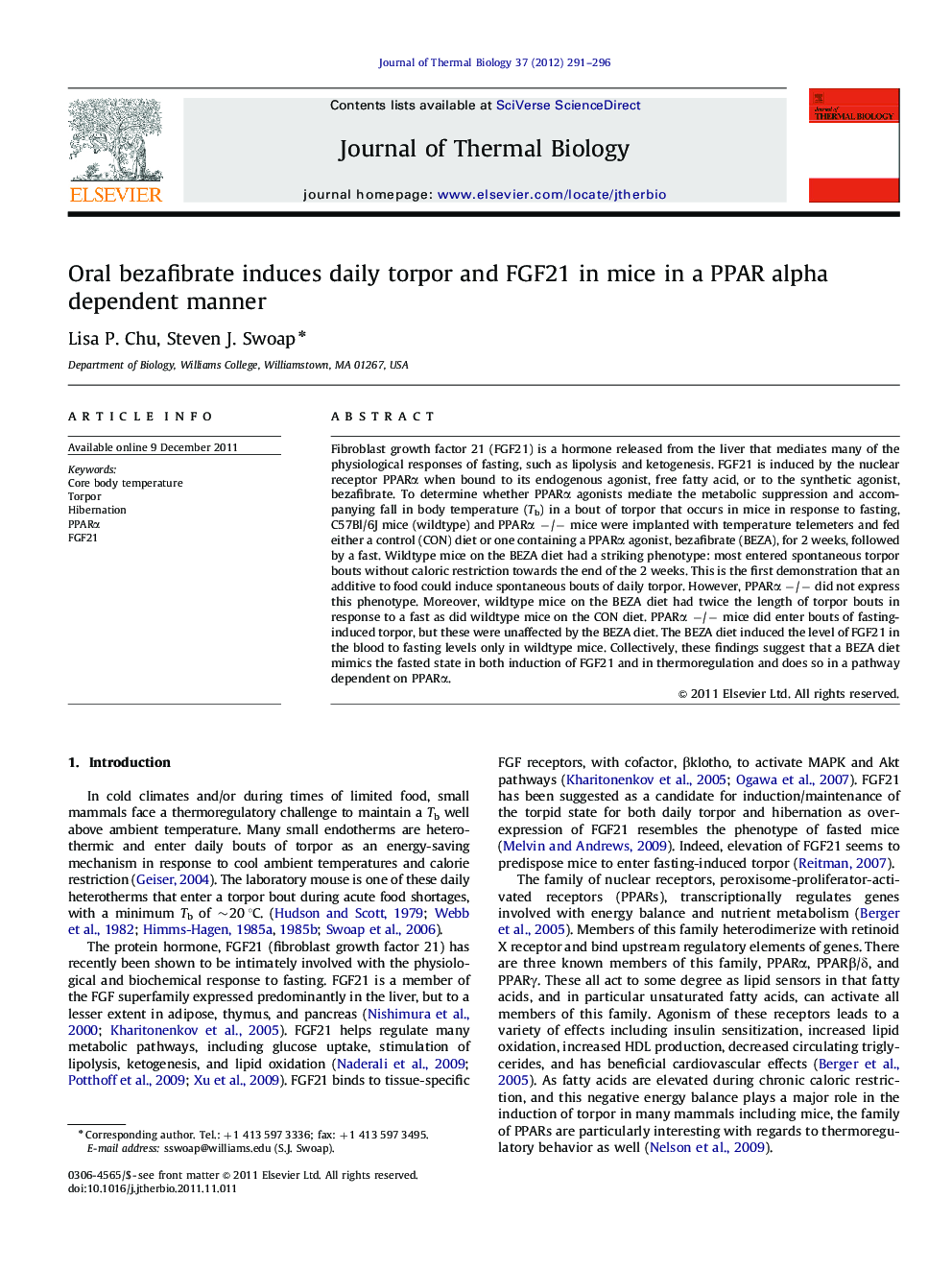| Article ID | Journal | Published Year | Pages | File Type |
|---|---|---|---|---|
| 2843292 | Journal of Thermal Biology | 2012 | 6 Pages |
Abstract
Fibroblast growth factor 21 (FGF21) is a hormone released from the liver that mediates many of the physiological responses of fasting, such as lipolysis and ketogenesis. FGF21 is induced by the nuclear receptor PPARα when bound to its endogenous agonist, free fatty acid, or to the synthetic agonist, bezafibrate. To determine whether PPARα agonists mediate the metabolic suppression and accompanying fall in body temperature (Tb) in a bout of torpor that occurs in mice in response to fasting, C57Bl/6J mice (wildtype) and PPARα â/â mice were implanted with temperature telemeters and fed either a control (CON) diet or one containing a PPARα agonist, bezafibrate (BEZA), for 2 weeks, followed by a fast. Wildtype mice on the BEZA diet had a striking phenotype: most entered spontaneous torpor bouts without caloric restriction towards the end of the 2 weeks. This is the first demonstration that an additive to food could induce spontaneous bouts of daily torpor. However, PPARα â/â did not express this phenotype. Moreover, wildtype mice on the BEZA diet had twice the length of torpor bouts in response to a fast as did wildtype mice on the CON diet. PPARα â/â mice did enter bouts of fasting-induced torpor, but these were unaffected by the BEZA diet. The BEZA diet induced the level of FGF21 in the blood to fasting levels only in wildtype mice. Collectively, these findings suggest that a BEZA diet mimics the fasted state in both induction of FGF21 and in thermoregulation and does so in a pathway dependent on PPARα.
Related Topics
Life Sciences
Agricultural and Biological Sciences
Agricultural and Biological Sciences (General)
Authors
Lisa P. Chu, Steven J. Swoap,
